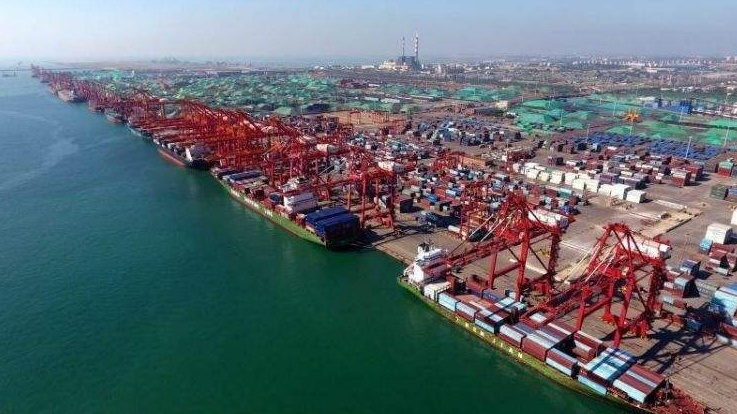ISLAMABAD, Nov. 20 (Xinhua) -- Pakistani Foreign Minister Shah Mahmood Qureshi said Wednesday that China-proposed Belt and Road Initiative (BRI) has emerged as the single most effective instrument of globalism and international development cooperation in the world.
The BRI's true potential lies in having created an awareness that the world would be better off by enabling each other to attain economic growth and development, he said.
Inaugurating a seminar, the International Conference on Belt and Road Initiative in the Changing Regional Dynamics, held by the think tank Institute of Strategic Studies Islamabad, here, Qureshi said that no other global initiative except the BRI can boast of involving more than 4 billion people living in the Asian, European and African regions, and bringing hope of shared prosperity, especially to the countries that are still struggling with their economies.
Sharing a study by the World Bank about the potential of the initiative after its completion, with the audience of the conference, the Pakistani foreign minister said that the BRI transport projects alone could reduce travel time along economic corridors by 12 percent, increase trade by up to 9.7 percent, income by up to 3.4 percent, thus lifting millions of people from extreme poverty.
"The BRI has a central role to play in converting this region into one rich in opportunities for economic growth and development. Who would appreciate this more than Pakistan, which is hosting a flagship arm of the BRI, called China-Pakistan Economic Corridor (CPEC)," Qureshi said.
Talking about his government's resolve to complete CPEC projects on priority basis, Qureshi said that a CPEC authority has been established to accelerate the on-going projects, while many energy and infrastructure projects of CPEC are already injecting dynamism into the process of Pakistan's economic development after their completion.
After completion of the first phase of CPEC, which mainly focused on infrastructure and electricity projects, Pakistan is now gearing up for the second phase of the multibillion-dollar project. Qureshi noted that the second phase will mainly focus on industrialization and socio-economic development for which nine special economic zones will be set up to focus on rapid industrialization.
Talking about Pakistan-China relations, the foreign minister said that all-weather strategic cooperative partnership with China occupies an important place in Pakistan's foreign policy priorities, adding that his country extends its full support to the BRI which it believes is an effective implementation mechanism for creating a more balanced, multipolar, inclusive, and multilateral architecture for the region and the rest of the world.
The BRI would link the nations of Eurasia like never before, he said.
Noting that the BRI, CPEC, and other such connectivity initiatives are being recognized as potent voices for globalism, Qureshi said that at the time when multilateralism is coming under duress, the BRI philosophy tells us that globalism is still relevant and the best hope for humanity.
During the two-day conference from Wednesday to Thursday, scholars and experts from China and Pakistan will discuss the future trajectory of China-Pakistan relations, CPEC and changing regional dynamics.




 A single purchase
A single purchase









